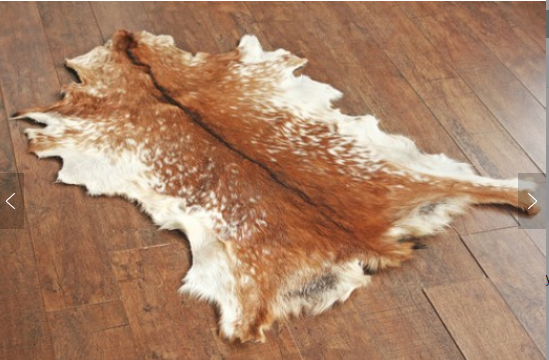
Kenya Revenue Authority (KRA) fingered Alpharama Limited for tax evasion.
The firm that is located Off Namanga Road in Athi River was found to have not paid taxes amounting to Sh157 million.
Due to this, KRA investigators have launched a new tax evasion syndicate in the leather industry that have led to the loss of Sh100 million in taxes every year.
The schemes involve fictitious declaration of taxes, understatement of weights and values and cross-stuffing cargo in the suspicious trade in raw hides and skins.
In one of the trade patterns that attracted the attention of the detectives, an alleged transit of raw hides from South Sudan passed through the port of Mombasa destined for Colombo in Sri Lanka. The same consignment was offloaded from the Sri-Lankan Port and eight days later returned to the port for shipment to Nigeria.
“We had first suspected that the cargo may have originated in Kenya but was concealed as a transit outward consignment. The shipment to Colombo and then a transshipment to Nigeria just a week later through the Mombasa port added to our suspicion and triggered an investigation that has flagged various anomalies in the suspicious trade,” an investigator said
The detectives had for a while suspected the use of raw hides and skins to conceal drugs owing to the strong stench that comes from the consignments, which largely make it hard for thorough inspection by port officials. The raw hide is said to be left to rot inside closed containers to produce a strong stench that few can come close to.
Illicit drugs trade
Port officials have also questioned the link to Sri-Lanka, a major narcotics hot spot, according to the United Nations Office on Drugs and Crime (UNODC) and the final destination to Nigeria raised further questions. The syndicate is also said to have been exporting empty containers as transit cargo to the Indian Ocean island nation located off the southern tip of India and known to be a major transit hub for international drug traffickers.
UNODC estimate that over half of Sri Lanka’s 30,000 inmates are in prison for drug-related offences, stretching the facilities built to accommodate just over half of that number.
The use of raw hides and skins, apart from providing easy camouflage for the drugs, is also said to be a lucrative tax evasion mechanism.
Kenya levies as high as 80 per cent tax on raw hides and skins to encourage value addition within the country before export. Once processed, there is no export duty on the products.
The syndicate is said to have thrived in the declaration that the raw hides and skins were on transit, even when sourced locally, evading the millions in taxes, according to the analysis covering January to August. The analysis found that 43 such consignments had passed through the port of Mombasa with understated weight by 325,344 metric tonnes and suspected to have evaded Sh25.3 million in export duty.
KRA is now investigating seven clearing and forwarding firms involved in the tax evasion racket and possible drug trafficking.
The cargo consignments alleged to have been on transit from South Sudan are also said to have been given fake electronic seals used to track transit goods. Four vendors have been earmarked for investigation after they were said to have facilitated the change of motor vehicle details for the trucks ferrying the cargo from the source.
“The electronic seal affixed on the vehicle was not genuine and did not produce information on the armed consignment,” the investigators wrote.
Fake seals
The use of fake electronic seals made the tracking of the lorries ferrying the alleged hides and skin from South Sudan impossible, raising concerns whether they had originated from the land-locked country in the first place.
Since goods in transit are not supposed to exceed 30 days from the date of entry into the port, an overstay of some cargo including one, which took 92 days to August 9, according to data from the Kenya Ports Authority, raised suspicion.
This is what led to the nabbing of Alpharama Limited.
export duty when they applied fixed exchange rates on the assessments of the cargo values for taxation despite currency having fluctuated from as low as Sh101.4 to Sh108.32 over the period.
The investigators now want the bank accounts of the companies investigated to determine the correct values that should have been used to charge tax on their cargo.
It remains unclear how the consignment details changed many times within the system, including the vehicle details and the owners of the cargo, creating another insider hand and drawing the clearing agents further to the centre of the investigations.



















